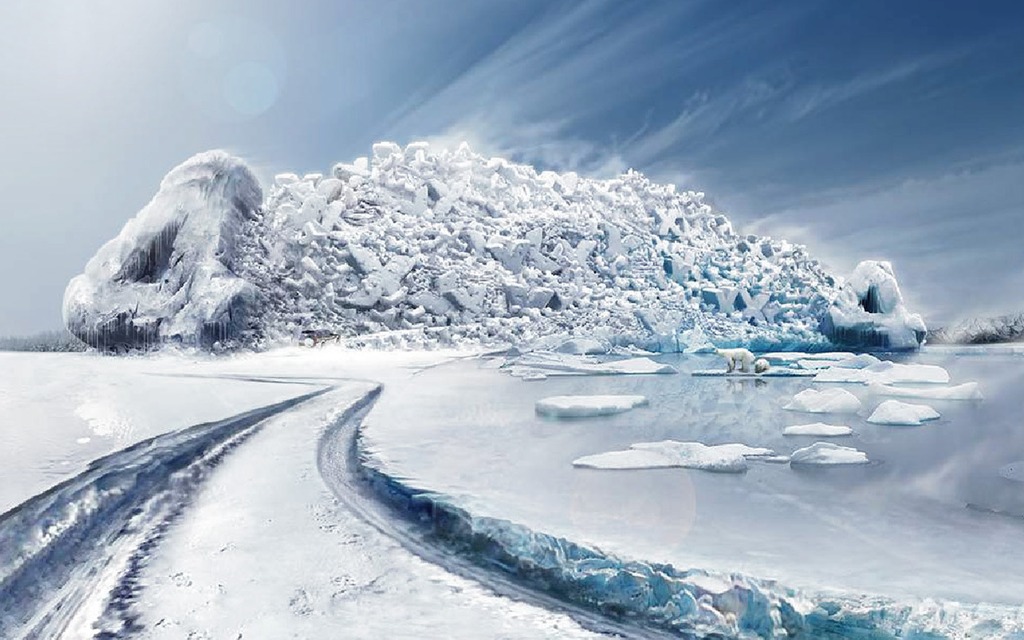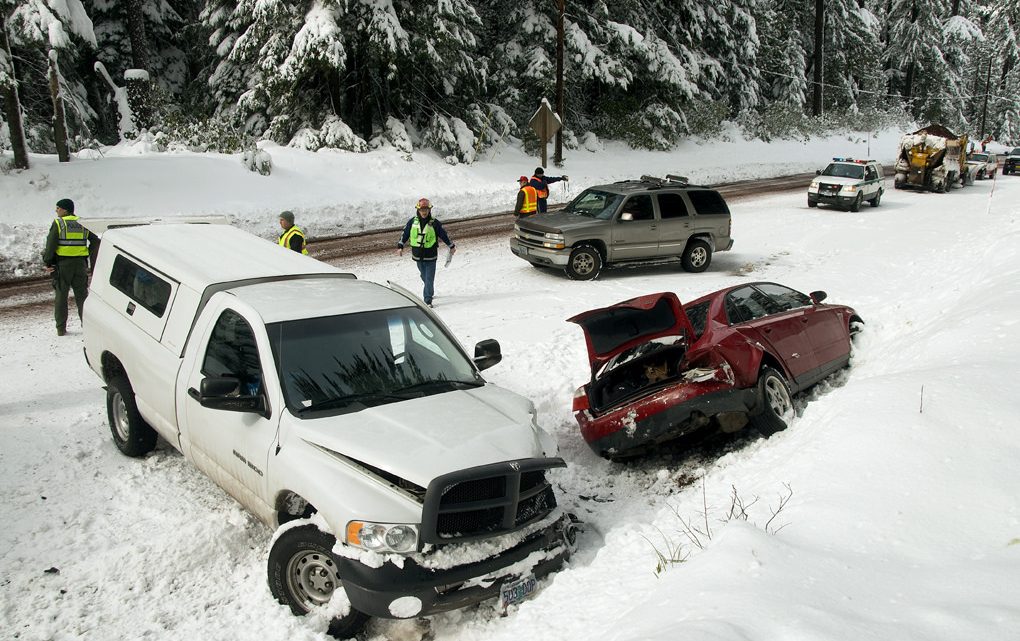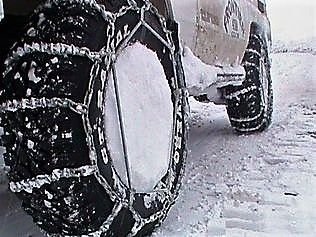Car Sliding on Ice:Winter Driving Safety Tips

Wipers - Good working order
Ice Scraper - A necessity
Windshield Washer Fluid - Fill Up
Anti-freeze - 50% water 50% Coolant
Battery & Belts - Check condition
Oil - Replace your oil with Winter grade oil.
Tires - Check treads, pressure and owners manual recommendations (Seasonal)

Snow brush w/ scraper
Flashlight w/ batteries
Blanket
Mittens, socks & hat
Small shovel
Sack of sand or kitty litter
Jumper cables
Hazard sign, flares or flag
Windshield washer fluid


For safe winter driving, know how your car should react in snow.
Rear wheel drives push you.
Front wheel drives pull you along!
The systems may feel a little different, but always steer in the direction of a skid, and make gentle corrections to regain control!


To make a stop on a slippery road surface:
Regular brakes – pump the brake pedal.
Anti-lock brakes (ABS) – press down and hold. The brakes will do the pumping

Skidding can occur for a variety of reasons:
Black ice
Driving too fast for conditions
Sudden acceleration
Sudden steering corrections
Braking
If your vehicle begins to skid, take the follow actions:
Front end skid – release the brake and let the front wheels roll freely to regain traction and steering control.
Rear end skid – take your foot off the accelerator and turn in the direction that the rear of the vehicle is skidding, pump the brakes slightly.


Black ice is especially dangerous because you can’t see it.
Areas where you commonly encounter it include:
Bridges
Overpasses
Underpasses
Shaded areas
If you encounter black ice:
Don’t panic.
Make no sudden changes in direction or speed.
Ease off the accelerator.
Gradually steer in the direction that the rear of the vehicle is skidding.

When you encounter fog, use your low beam headlights.
If possible, stop, get off the road and wait until conditions improve.

Driving at reduced speeds enables you to stop quicker.
Activate turn signals sooner than usual. This give other drivers more time to react.
Touch your brake pedal to warn other drivers of your intention to slow or stop.
Maintain at least triple the normal distance from the vehicle in front of you.
Keep your gas tank at least half full.
Allow more time for travel.
Drive with your lights on.
Look well ahead of you.
Anticipate problems.


Clear a path.
Straighten the front wheels.
Use abrasive material under the wheels (sand, cat litter).
Gently press the accelerator.
Don’t spin the wheels.
As a last resort, rock the vehicle from forward to reverse (check the owners manual).
Thank you for reading and for commenting! Please share, upvote and let me know your thoughts!